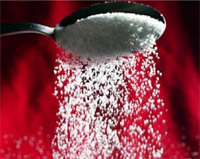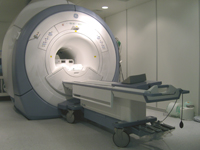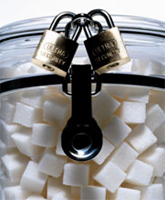The clinical picture, accompanied by a feeling of hunger, sweating, weakness, confusion is hypoglycemia. The causes of it are diverse, the main - insulin hypersecrection by the cells of the pancreas, this is characterized by hypoglycemia. Pathophysiology of metabolic processes - the topic of the article today.
Content
- Etiology and pathogenesis of hypoglycemia
- The role of adrenaline in the clinical picture of the disease
- You should know it!
 Reducing blood glucose concentration below the figure is 3.3 mmol / l — This is a dangerous state that occurs when a violation of carbohydrate metabolism is hypoglycemia. Pathophysiology of this state, as well as the sensation of the patient at the level of glucose below 2.8 mmol / l, are associated with the energy starvation of the brain, the main consumer of glucose.
Reducing blood glucose concentration below the figure is 3.3 mmol / l — This is a dangerous state that occurs when a violation of carbohydrate metabolism is hypoglycemia. Pathophysiology of this state, as well as the sensation of the patient at the level of glucose below 2.8 mmol / l, are associated with the energy starvation of the brain, the main consumer of glucose.
It is necessary to distinguish the hypoglycemia of the physiological, which occurs in healthy people who are not associated with the reception of drugs, for example, after starvation, and pathological as a consequence of pituitary diseases or adrenal glands, impaired carbohydrate exchange.
Etiology and pathogenesis of hypoglycemia
Hypoglycemia is possible with excessive hormone products, weak glycogen cleavage during glycogenoses, lesion of liver cells in the case of acute or chronic hepatitis, impaired carbohydrate absorption. Patients with diabetes are usually inclined to hypoglycemia, it can be caused by an overdose of drugs that reduce blood glucose content. Long starvation, state after surgery on the stomach, communication with pathological changes in pituitary glands and adrenal glands can also be accompanied by hypoglycemia. Alcohol hypoglycemia may occur in healthy people after one-time reception of a large amount of alcohol, more often on an empty stomach.
A special kind of reactive hypoglycemia is observed in children of the first year of life, caused by products containing fructose or galactose, as well as kids born from materna suffering from diabetes and taking medications that reduce blood sugar concentration.
The role of adrenaline in the clinical picture of the disease
The clinical picture of hypoglycemia is manifested by biochemical and pathophysiological impairment of carbohydrate exchange. Source of carbohydrates — It is vegetable food, and man to meet life needs up to 400-500 g per day. Disturbance of glucose absorption can be due to the congenital insufficiency of the enzyme of the intestinal mucosa or in the pathology of the transport system, which ensures the exchange and disposal of carbohydrates. Signs of this state are:
- diarrhea;
- bloating after receiving carbohydrates;
- irritability;
- growth in growth;
Description of hypoglycemia symptoms, the reasons for its occurrence necessarily implies the relationship between the sugar content and the release of adrenaline from adrenalines. It is this substance that stimulates the release of glucose from the organism reserves, causing heartbeat, trembling, nervousness, fear, reinforced sweating. Sugar level decreased to 2.8 mmol / l provokes the energy hunger of the brain cells, which is manifested by a disorder of memory and concentration, coordination of movements, speech, hearing, view, disorientation in space. Headache and confusion develops, sometimes changing behavior can be taken for alcohol intoxication with characteristic features: the inability to concentrate attention, convulsions, vision disorder, and even coma. Long stay in a number of coma leads to irreversible changes and brain damage.
You should know it!
 Symptoms of hypoglycemia can begin slowly or vice versa, developing very rapidly for a few minutes and manifest itself with a feeling of light inexplicable discomfort or severe consciousness. With acute overdose of drugs that reduce the level of glucose, may arise:
Symptoms of hypoglycemia can begin slowly or vice versa, developing very rapidly for a few minutes and manifest itself with a feeling of light inexplicable discomfort or severe consciousness. With acute overdose of drugs that reduce the level of glucose, may arise:
- focal neurological disorders;
- epileptiform seizures;
- loss of consciousness and coma.
The dose of insulin is more than 100 pieces able to lead to death, at the same time, if the dosage of insulin does not exceed the 50th, hypoglycemic who can prevent and help the patient at home. Those who take drugs that reduce blood sugar should be remembered than more intensively insulin therapy, the more often hypoglycemia occurs.
Each patient receiving drugs that reduce the concentration of sugar must be familiar with the rules of first aid in hypoglycemia, it is desirable that relatives also owned these skills, and have a glucose meter for blood glucose monitoring.









